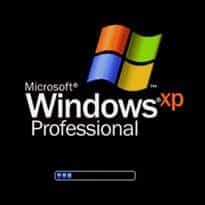DH looking to extend support for XP
- 14 February 2014

The Department of Health is looking to provide the NHS with extended support for the Microsoft operating system, Windows XP.
Microsoft is due to end support for the obsolete operating system, which was launched in 2001, on 8 April 2014, and has been running an extended publicity campaign to encourage customers to move to newer alternatives.
However, research by EHI Intelligence, published in September, revealed that 85% of NHS desktops were still using the system, while just 14% were running the newer Windows 7 and 1% Windows 8.
Some NHS IT directors told EHI Intelligence that they were hoping that a national solution would be found for the NHS.
Although this seemed unlikely at the time, a DH spokesperson said yesterday that it was working with the company on “a migration plan and extended support” for the health service.
“These discussions should be concluded shortly,” the spokesperson added. “As well as militating against the potential risks of unsupported Windows XP, we hope this will save a lot of money for the NHS, alongside the benefits of more modern operating systems.”
The NHS is heavily reliant on Windows XP because of the Enterprise wide Agreement that the DH negotiated with the company in 2004.
The deal enabled trusts to run any operating system covered by the agreement, which the government allowed to lapse in 2010, and so would have covered Windows 7.
However, few trusts adopted the intermediate operating system, Vista, which left them without an obvious upgrade path.
In addition, some clinical IT systems, and many trust applications, were designed to run on the older OS, and present significant challenges to migrating away from it.
EHI Intelligence senior analyst SA Mathieson said: "some NHS trusts and boards are well-prepared for the end of XP support, generally through a move to Windows 7, but many have started very late, often because of compatibility problems with clinical software.
“They will appreciate this support, but it should not be used as an excuse to delay further. There seems to be a reluctance to spend money on ICT infrastructure rather than application software, but doing so can improve staff efficiency. For example, mobile hardware allows mobile working, both within NHS buildings and in the community."
Although the DH is now looking to agree a new deal with the company, the Register website has also predicted that this will come at a significant cost, if only to encourage trusts not to delay their move away from XP indefinitely.



